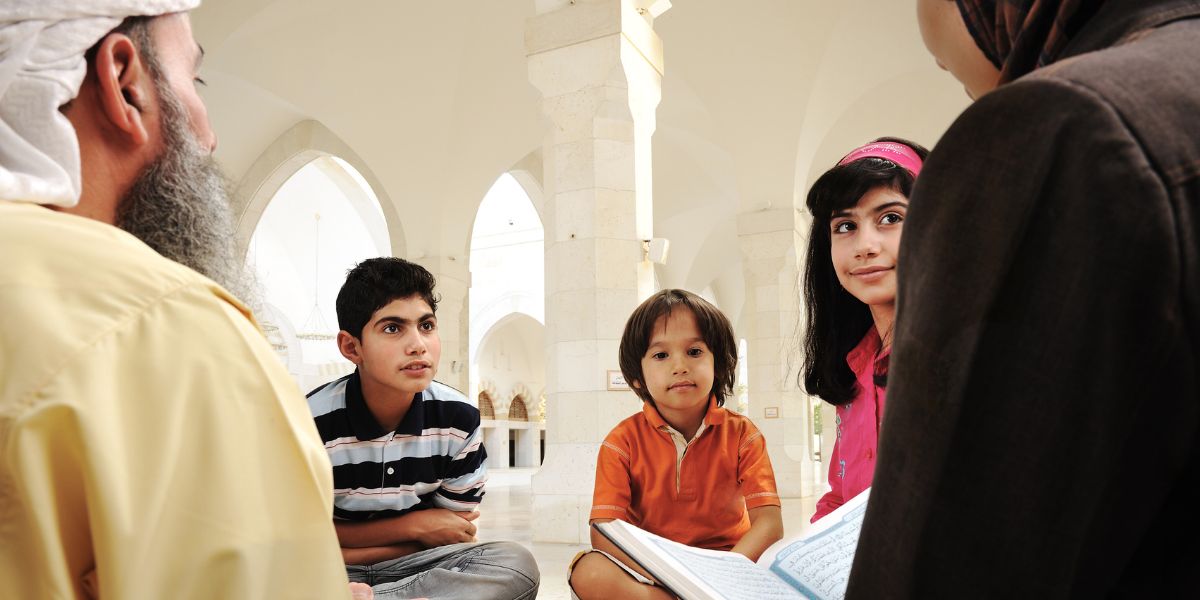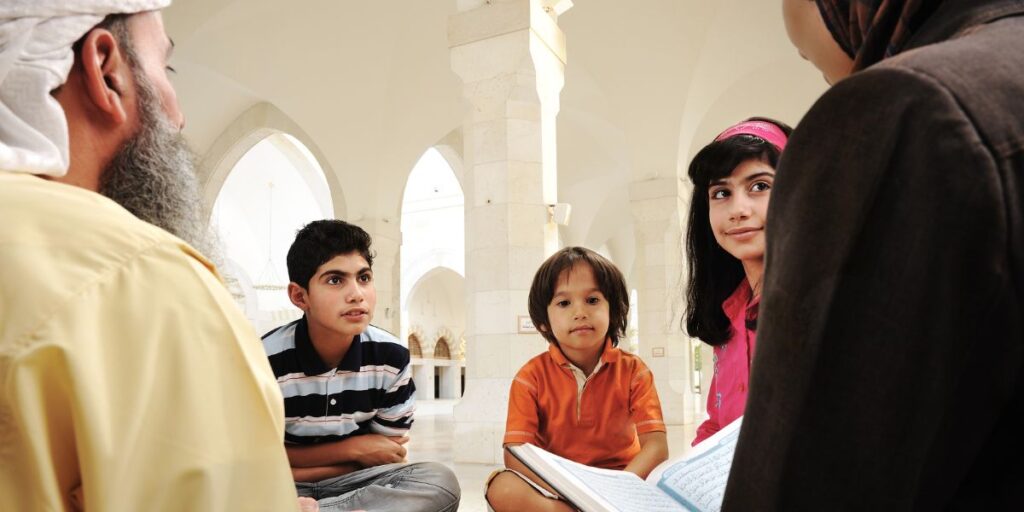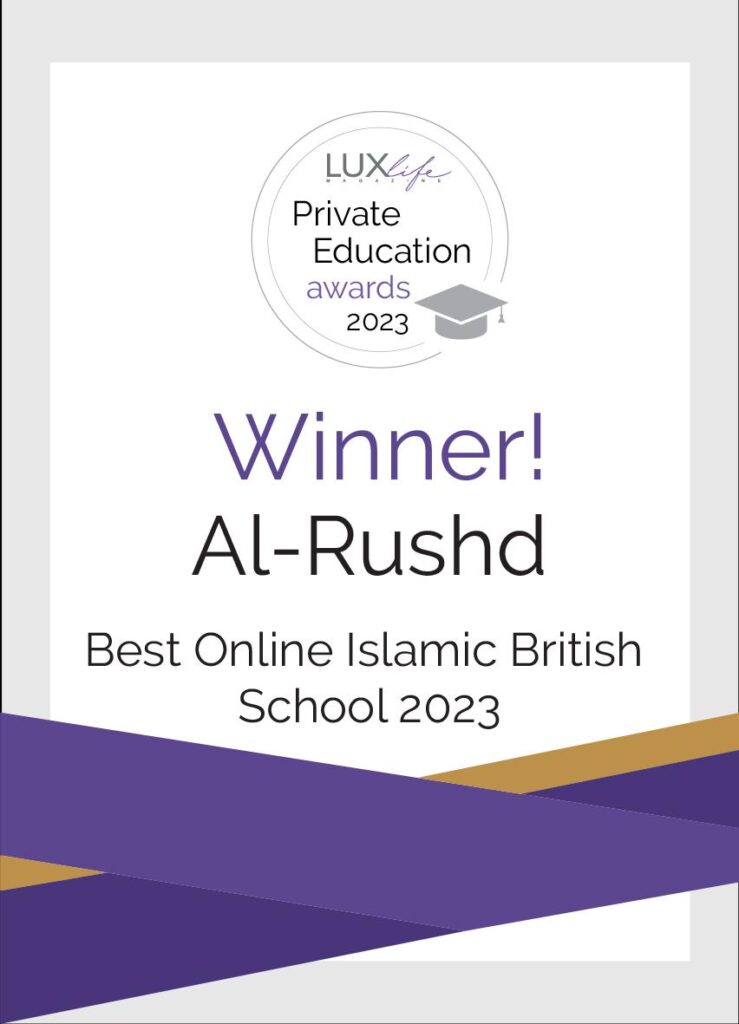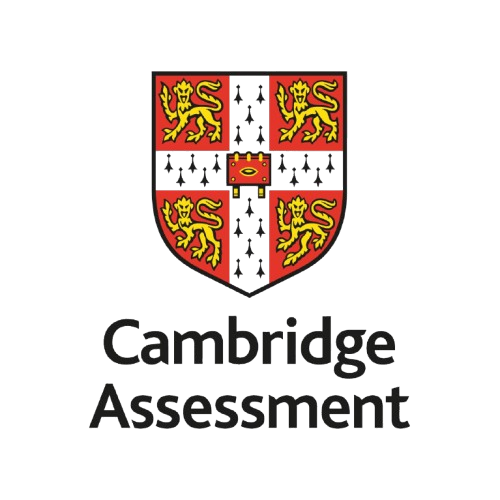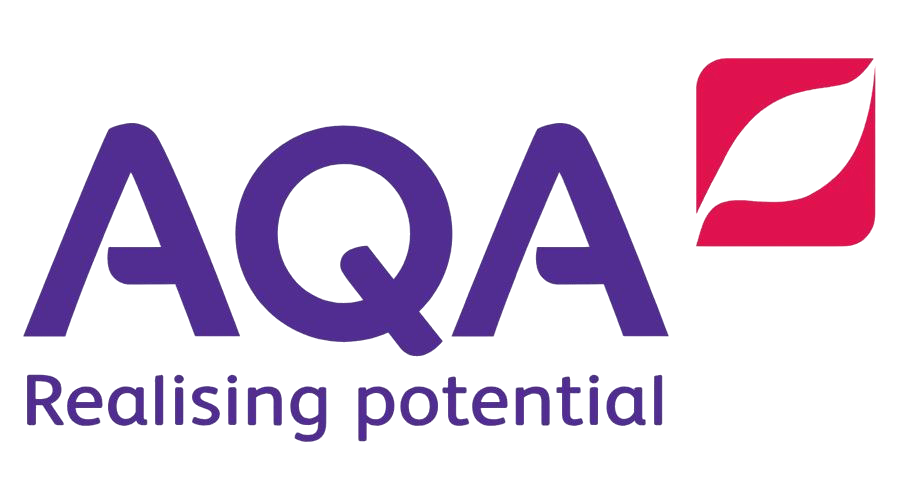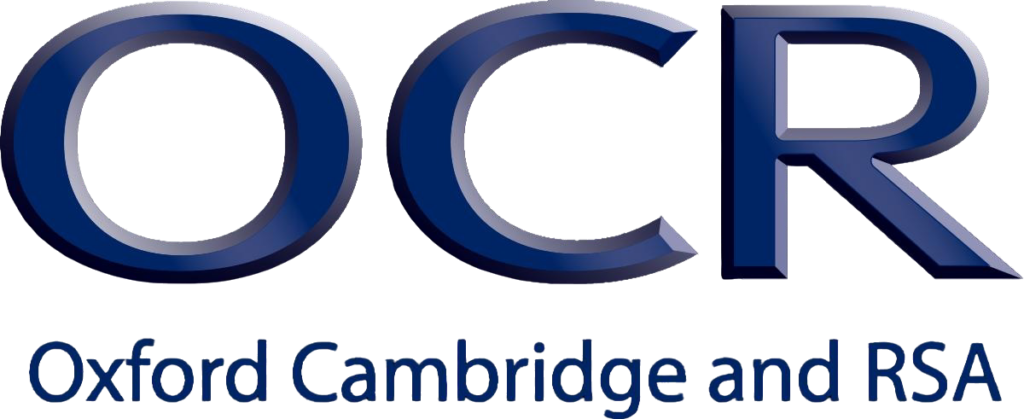Homeschooling families have the freedom to teach their children in ways that reflect their values and convictions. The Islamic homeschool curriculum is an excellent resource for Muslim families, combining academic accomplishment with religious teaching. Home schooling allows for greater control over what and how students are taught than a traditional classroom setting.
Parents can focus on creating an environment based on Islamic principles while meeting national academic standards. This also offers the educational process an individualised significance. In the United Kingdom, it is critical to understand what constitutes a successful Muslim homeschooling program. Parents can raise well-rounded, confident, and intelligent children who are deeply connected to their Muslim identity by emphasising both spirituality and academics.
Why Is It Vital to Have An Islamic Curriculum in Homeschooling?
Raising children with strong morals and faith is more important today than it has ever been. An Islamic homeschooling program provides a solid foundation in both deen and dunya. It ensures that students receive the knowledge required to flourish academically while also learning about their religion at a young age. Children’s religious development is significantly enhanced through classes in Qur’an studies, Islamic history, and Arabic.
Simultaneously, core courses in English, physics, and maths ensure that students stay ahead of their academic growth. A Muslim homeschool curriculum is appealing because it adapts Islamic ideas to regular education. This strategy helps children develop a strong sense of identity, purpose, and belonging in a culture that is often full of diversions and conflicting beliefs.
Fundamentals of Islamic Homeschool Curriculum
A comprehensive Islamic homeschooling program includes both Islamic and general academics. These are the primary elements a Muslim parent should consider while planning their home schooling curriculum UK:
1. Studies of the Quran
The fundamental focus of an Islamic homeschool curriculum is Qur’an instruction. Children should start by learning the proper tajweed recitation method. Regular recitation helps children understand the verses and pronounce them correctly. They can begin to memorise brief surahs and gradually increase their hifz path. Aside from memorising the Qur’an, one must also understand its meanings.
Parents can teach their children lessons from multiple surahs using age-appropriate tafsir books and storybooks. This would empower young people to connect morally and spiritually with the Quran. Regular revision, reflection exercises, and Qur’an journaling serve to make studying more organised and enjoyable. This sacred learning should be ongoing and consistent throughout their educational journey.
2. Islamic Studies (Aqeedah, Fiqh, History, Hadith)
Islamic studies serve as the cornerstone for the Muslim homeschool program. These subjects help kids understand the core of their religion. Belief in Allah, the Prophets, the Angels, the Day of Judgement, and Qadr teaches them the essential concepts of faith. Fiqh, or jurisprudence, deals with the practical aspects of worship, such as how to pray, perform wudu, fast, and engage in other worship activities. Hadith studies teach pupils to appreciate and revere the Prophet Muhammad (peace be upon him) by examining his sayings and deeds.
Islamic history connects children to their rich inheritance, which includes the lives of prophets, friends, and famous Islamic thinkers. Stories, visuals, and hands-on experiences help to keep these subjects interesting during education. Combining spiritual growth with practical application allows children to practise their religion every day.
3. Arabic speaking
The language employed in the Qur’an, Arabic, is essential for gaining a deeper understanding of Islam. Early Arabic training allows children to understand the Quran in addition to reading it. Strong Islamic homeschool curricula should include both spoken and written Arabic. Begin with basic vocabulary and Arabic letters. Pictures, flashcards, and music can help to pique people’s interest.
As the child progresses, teach grammar, reading comprehension, and writing. Include brief Quranic passages and hadiths to show how Arabic is used in religious works. Several websites, apps, and textbooks are available to help students learn Arabic at home. Children who understand the reasons for their prayers and scriptures will be more connected to Islam since they comprehend Arabic.
4. Character and Moral Development: Adab and Akhlaq
An Islamic homeschooling curriculum seeks to develop pupils with strong character and behaviour. Adab (etiquette) and Akhlaaq (morality) are two key Islamic teachings. This component contains classes on honesty, compassion, respect for elders, helping others, and thankfulness. Children will learn and apply excellent character through real-world examples, stories from the seerah (Prophet’s life), and hands-on activities. Role-playing activities, family discussions, and writing are all good.
Daily reinforcement of these principles will encourage children to think about their behaviours. Strong morals and good behaviour help a child develop their Islamic identity and prepare them to be decent members of society. These characteristics are frequently more important than academic achievement in terms of future preparation.
4. Integration with general subjects
A solid Muslim homeschool program addresses wide intellectual issues from an Islamic perspective. Use science to explore the signs of Allah’s creation, and maths to investigate zakat computations. Literary abilities could include writing Islamic texts or correspondence to Muslim authorities. Incorporating Islamic beliefs into mainstream education helps young people understand that Islam is not apart from everyday life.
Following the UK homeschool curriculum will assist parents in ensuring their children meet national criteria while maintaining their Islamic identity. Many parents combine Islamic resources with mainstream goods such as CGP or Twinkl to tailor their training. This comprehensive technique ensures that children remain academically successful while developing ethically and spiritually.
5. Both physical and artistic endeavours
Children must maintain equilibrium through physical play and inventiveness. Sports, arts, and crafts should be part of the Islamic homeschool program. Walking, biking, and martial arts should all be part of the routine because exercise is a sunnah and essential for health. Children can express themselves through artistic endeavours such as calligraphy, painting, or Islamic journaling. Islamic lessons can also be learnt through gardening, sewing, or cooking.
Both artistic and physical pursuits improve emotional health, discipline, and concentration. They also add some entertainment value to the homeschooling experience. These events provide opportunities for family connection and the reinforcement of characteristics such as gratitude, patience, and teamwork. Keep them constant and tailored to the age and interests of each child.
How to Align with the UK Homeschool Curriculum
In the United Kingdom, Islamic homeschooling families often want their children to flourish both spiritually and academically. Understanding how to align your Islamic homeschool curriculum with the UK homeschool structure will allow you to create a balance between faith-based learning and national educational standards, making it more accessible.
The following concepts can help you efficiently blend Islamic and academic values:
1. Use resources approved by the UK
Using UK-approved learning resources is the first step towards putting Islamic homeschooling in line with the UK homeschool curriculum. These materials ensure that your child meets age-appropriate academic objectives and reflects the national Key Stage goals. When teaching science or English, for example, you can select books and activities that meet UK standards while subtly promoting Islamic ideas.
Qur’anic origin myths can be used in a scientific curriculum about the solar system. An English reading program can include novels with strong moral values or stories authored by Muslim authors.
2. Track educational development
Homeschooling families in the United Kingdom are expected to keep reliable records of their children’s education. This includes daily plans, topic outlines, evaluations, homework, and progress reports. Monitoring your child’s progress in this manner ensures that he or she meets national academic performance criteria. It also prepares students for formal assessments such as GCSEs or potential transitions to regular school. Organising your portfolio or using internet-based learning tools allows you to better track your child’s educational progress.
3. Organize Islamic beliefs into core themes
The ability to combine Islamic teachings with standard academics is one of the most significant benefits of homeschooling. Instead of segregating religious and secular subjects, they may organically coexist. In geography, children can learn about Islamic places and countries where Muslims are the majority. In science, natural laws could be described as Allah’s creation. Even maths classes may incorporate useful zakat or inheritance-related practical assignments. This strategy helps children develop their engagement with Islamic ideas while also assisting them in becoming academic specialists.
4. Join the local and internet support systems
Many parents find success through community. Combining UK homeschooling networks (local and internet) has various benefits. Families can share lesson ideas, check in on one another, and collaborate on projects or field trips. Some organisations integrate joint Islamic studies sessions or Qur’an memorisation programs explicitly aimed at Muslim homeschoolers. These organisations also provide children with social opportunities through group learning or activity days, as well as emotional support for parents, particularly during challenging homeschool weeks.
5. Take inspiration from existing models
Organizations such as Al-Rushd Independent Online School illustrate that it is not only possible, but also successful, to blend Islamic ideals with UK standards. Al-Rushd divides its days into Islamic and academic instruction. Children begin with subjects such as Qur’an, Arabic, or Islamic Studies before moving on to UK curriculum-based topics such as arithmetic, science, and English. Homeschooling families may find motivation in their approach. Even if you do not attend such a university, observing how they manage academic balance and scheduling will help you better plan your own.
6. Plan adaptably for a particular purpose
One of the primary benefits of homeschooling in the United Kingdom is total flexibility. The law allows parents to tailor the school day so that it best meets their child’s needs. With this freedom, it is easier to combine Qur’an recitation, prayer breaks, and Islamic narrative with academic learning blocks. The key is to be consistent and thoughtful, whether you have a specific plan or take a more relaxed approach. Islamic homeschooling can be effectively aligned with the UK curriculum by striking the right combination of resources, record-keeping, community support, and inspiration from leaders like Al-Rushd, giving your child a well-rounded, values-driven education.
Choosing the Right Islamic Homeschool Curriculum
Choosing the right Islamic homeschool curriculum needs devotion, time, and planning. First, consider what you want: do you want to completely memorise the Qur’an? Academic brilliance? Strong Arabic? Then choose from online classes, books, or live coaching. Verify that the items meet UK criteria.
Search for courses that combine academics and faith. Some, like Al-Rushd Independent School, offer live teachers alongside structured online training. Others provide entirely adaptable printed lesson plans. Before committing completely, take a sample lesson.
Consider your child’s learning style: Do they benefit from visual aids? The one that best meets your child’s needs and aligns with your family values is the perfect one. Remember that you have the freedom to make changes as you go.
FAQs
1. When should I start homeschooling in the UK?
You can start homeschooling your child at any age in the UK. Following school start dates is not required by law. Most parents begin formal education for their children around the age of five. However, Islamic homeschooling began with elementary Arabic phrases and Qur’anic recitation earlier.
The secret is to be in a strict but responsive environment. Make sure your plan includes Islamic studies as well as courses from the UK homeschooling system. Start slowly and gradually increase teaching based on your child’s speed.
2. Can I follow both the UK and Islamic curriculum?
Indeed, many families combine the Islamic homeschooling program with the homeschooling UK paradigm. For arithmetic and science, utilise UK textbooks; for Islamic studies, Arabic, and the Qur’an, use Islamic sources. Online initiatives like Al-Rushd School make this easier. Along with national introductory courses, they provide faith-based classes. Parents also create tailored courses that combine objectives. Following both ensures that children grow in their religion and achieve intellectually.
3. What supplies do I need for Islamic home schooling?
First, you’ll need the Qur’an, Arabic books, Islamic studies guides, and scholarly worksbooks. Use English, science, and maths textbooks that are aligned with UK standards. For Islamic students, use information written by credible authorities. To make learning more interesting, incorporate flashcards, writing books, and craft projects. Some parents print out courses or use online resources.
Al-Rushd, among other schools, offers all-in-one digital solutions. Remember to include moral principles as well as practical life skills like personal cleanliness and time management. Simplify materials and match them to their age.
4. Is Islamic homeschooling available online reliably?
Indeed, when done right, internet homeschooling may be highly successful. Nowadays, some UK universities provide comprehensive Islamic homeschool curricula as well as live lectures. Al-Rushd, for example, offers online courses on the Qur’an, Islamic studies, general topics, and Arabic.
These institutes are run by trained teachers and follow proper educational rules. Before enrolling, parents should study the curriculum, sample lessons, and reviews. With regular internet access and parental supervision, online learning can provide flexibility and a high-quality education from home.
5. How can I track my homeschooling progress?
Monitoring your child’s growth allows you to see what he or she has learnt and where they need to improve. Exams, quizzes, projects, and journals can all be used to assess development. Sort reports and homework into a basic folder or digital file. Many UK-based homeschooling projects provide progress tracking.
Use memorisation diaries or reward charts to teach Islamic themes. Al-Rushd, among other schools, provides frequent updates and feedback. Conversations, workbooks, and unofficial reviews all provide opportunities for evaluation. Regular tracking makes homeschooling more targeted and successful.
Conclusion
A well-balanced Islamic homeschool curriculum instills in children both knowledge and faith. Every aspect of the child’s mind and character is shaped by the Qur’an and Arabic, as well as arithmetic and moral growth. Parents in the UK now have greater access to faith-based resources and homeschooling UK curriculum tools than they did years ago.
Schools like Al-Rushd show how genuinely deen and dunya may be blended in lessons. Whether you’re just getting started or shifting your direction, stay focused on your goals and trust the process. With the right tools, purpose, and organisation, your home may become the best school your child has ever attended.









